
Project Gutenberg's The Cynic's Rules of Conduct, by Chester Field Jr. This eBook is for the use of anyone anywhere at no cost and with almost no restrictions whatsoever. You may copy it, give it away or re-use it under the terms of the Project Gutenberg License included with this eBook or online at www.gutenberg.org Title: The Cynic's Rules of Conduct Author: Chester Field Jr. Release Date: May 2, 2010 [EBook #32227] Language: English Character set encoding: ISO-8859-1 *** START OF THIS PROJECT GUTENBERG EBOOK THE CYNIC'S RULES OF CONDUCT *** Produced by Chris Curnow and the Online Distributed Proofreading Team at http://www.pgdp.net (This file was produced from images generously made available by The Internet Archive)


o to the Aunt, thou sluggard, and offer her ten off on your legacy for spot cash.

he difference between a bad break and a faux pas indicates the kind of society you are in.

hen alone in Paris behave as if all the world were your mother-in-law.

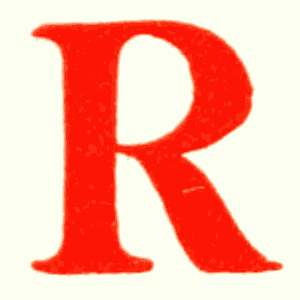
emember, too, that perhaps you are not the sort of husband that Father used to make.

ou may refer to her cheeks as roses, but the man who sends her American beauties will leave you at the post.
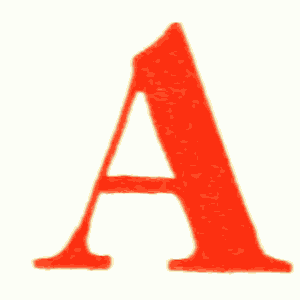
woman should dress to make men covetous and women envious.

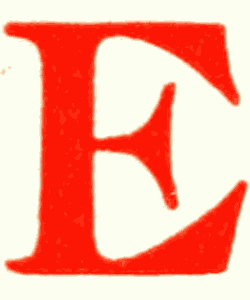
ven Cupid crosses his fingers at what he hears by moonlight.

fter marriage you may speak of her temper; but during courtship you had better refer to it as temperament.

hen dinners entice thee consent thou not.


he position of the hostess should be at the doorway of the drawing-room to receive her guests. The position of her husband should be at his office desk making the money to pay for the blow-out.

t is safer to do business with jailbirds than with relatives.
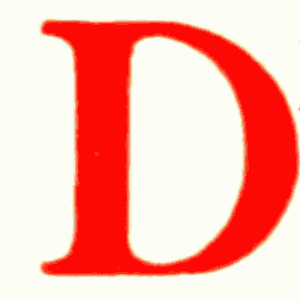
iscuss family scandals before the servants. We should always be kind to the lower classes.


hen children paw a visitor's gown with their candied fingers the proper observation for the mother to make is: "My children are so affectionate."

eprimand your servants before your guests. It shows your authority.

he chief duty of the best man is to prevent the groom from escaping before the ceremony.


n marching up the aisle to the altar the bride carries either a bunch of flowers or a prayer book. Her father carries a bunch of money or a cheque book.

n returning from the altar be careful not to step on the bride's train. There's trouble enough ahead without that.

on't blow your own horn when you can get some one else to blow it for you.


eep your servants in good humor, if you can—but keep your servants.

our conduct in an elevator should be governed by circumstances. Should the lady's husband remove his hat keep yours on. Should he fail to remove it, take your hat off. This will embarrass him.
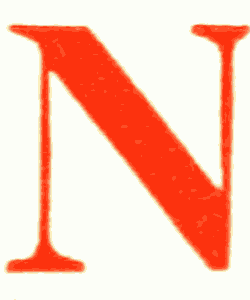
ever put in the collection box less than ten per cent. of the amount you tip your waiter at luncheon.


t afternoon funerals wear a frock coat and top hat. Should the funeral be your own, the hat may be dispensed with.

t is never in good taste to indulge in personal pleasantries, such as referring to a lady's artificial teeth as her collection of porcelains.

eware of the man who never buys a gold brick. The chances are that he sells them.


ndorse checks about two inches from the end. Don't indorse notes at all.

o house should be without its guest-chamber. Besides giving one's home an air of hospitality, it makes an admirable store-room for dilapidated furniture and unspeakable pictures.

here is only one worse break than asking a woman her age: it is looking incredulous when she tells it.


t is not good form to rehearse your domestic difficulties in public, but it is mighty interesting to your auditors.

ever leave a guest alone for a moment. Force your entertainment upon him even if you have to use chloroform.

f you would have a serene old age never woo a girl who keeps a diary.


hen you are inclined to be haughty, remember that a cook in the kitchen is worth two in the employment office.

chef is a cook who gets a salary instead of wages.

t is better form for a bride to take her wedding journey with the groom than with the coachman.


nder no circumstances associate with persons who wear detachable cuffs. Such men are usually trying to get rich at the expense of the washerwoman.

hen crossing the Atlantic no gentleman will rock the boat.

ake care of the luxuries and the necessities will take care of themselves.


hose who live in glass houses should be polite to reporters.

hen in a hurry to get to the poor house, take the road that leads through the bucket shop and passes the race track.

ondensed milk should be used in a small flat.


ell your rich relations how fast you are making money—your poor ones, how fast you are losing it.

n taking soup try not to give others the impression that the plumbing is out of order.

hen giving a studio tea, remember that there should be soft lights and hard drinks.


schew the race-track and the roulette table. Faro is a squarer game than either.

eware of indiscriminate charity. You will never get your name in the paper by giving a tramp the price of a meal.

efore marriage the fashionable tint for eyeglasses is rose; after marriage smoked glasses should be worn.


f you would make a lifelong friend of a man who lives in a hall bedroom, accuse him of leading a double life.

o sportsman will shoot craps during the closed season.

ompliments paid a woman behind her back go farthest and are remembered longest.


void having business relations with a man whose I. O. U. is not as good as his note; but take his note by preference.

hen playing poker, it is as bad form to wear a coat as it is to be shy.

he father gives the bride away, but the small brother would like to.


n the best society it is considered snobbish to wear a disguise when entertaining country cousins. Simply take them to places where you will not encounter your friends.

t the tables of the very wealthy, brook trout have given place to gold fish.

o get on in society a woman should cultivate repose—and a few prominent social leaders.


hen angry count ten before you speak. When "touched" count one thousand before you lend.

n entering a crowded car, a lady should leave the door open. It is quite permissible for her to appropriate the seat of the man who gets up to close it.

f your friend asks you to lend him your evening clothes, hide your toothbrush without delay.


ever leave the price tag on the present, unless it is a very expensive present.

t a formal dinner the hostess should see that raw oyster forks should be placed alongside the plates. If she hasn't any raw oyster forks she may use cooked ones.

ou should bear in mind that to be kind to your employees, it is not absolutely essential that you kiss the stenographer every morning.


f you would be thought a fool, play with a loaded pistol; if a knave, with loaded dice.
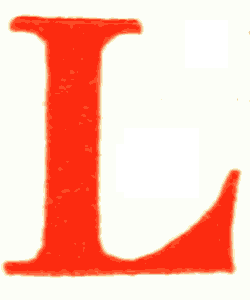
et the reign of your summer girl be no longer than her bathing suit.

t is coarse for a divorcée to refer to her ex-husband as the late Mr. So-and-So. She should speak of him as, "My husband once removed."


very investor should have a ward. A ward's estate is a great convenience in unloading financial indiscretions.

void church fairs. It hurts less to be stung by the Scoffers than by the Faithful.

eople who think that newspaper advertisements are not read should watch a man sitting in a street car where women are standing.


t a formal dinner, one may serve five different wines; but no indifferent ones.

hen in the street with a lady, a gentleman should not light a cigarette unless the lady does.

man will let go his religion before he parts with his respectability.


n engagement ring should not be passed around like "the buck" in a poker game. "New girl, new ring," is the rule in select society.

resses that look as if they had set the wearer's father back more than $100 should always be referred to as "frocks."

adies should not wear garden hose except at garden parties.

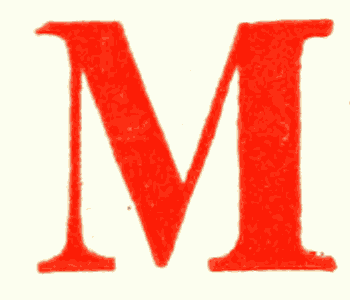
en will lose their reputations as gay deceivers when women are less willing to be deceived.

hen at a wedding breakfast try to remember that you will probably have other opportunities of drinking champagne.

emember that your wife's wardrobe is the Bradstreet in which women look for your rating.


ne of the joys of wealth is the right to preach the virtues of poverty.

t a wedding married women cry because they've been through it and unmarried women for fear they won't.

f a man's worth doing at all, he's worth doing well.


hen you end a letter "Please Burn This," post it in the fireplace.

hen you start out to "do" Wall Street buy a return ticket.

ever refer to your indisposition as mal de coeur when it is mal de liqueur.


ure your wife of bargain-shopping and you will have more money for bucket-shopping.

ncourage your husband to go to his club. Otherwise, you will miss a lot of gossip that you can use in your business.

he mother-in-law joke was invented by a bachelor. To the married man the mother-in-law is no joke.


t is not good form for a young girl to go to the theatre with a gentleman, unaccompanied by a chaperone. On the other hand, it is not good fun for her to go to the theatre with a chaperone, unaccompanied by a gentleman.

o gentleman will strut about his club with his hat on. There is no rule, however, against his having a jag on.


hen you step on a lady's toes make some offhand remark about her feet being too small to be seen. This is older than the cave dwellers; but it still works.

hen organizing a friendly poker party, don't invite friends.

ettle an allowance on your wife and you'll always know where to borrow money.


trict convention decrees that if a young girl accepts from a man any gift more valuable than sweets, flowers or tips on the races, she shall not mention the fact to her mother.

corkscrew is not the only symbol of hospitality.

hen you catch your caller kissing the maid, remind her that the kitchen is the proper place to entertain her friends.


on't forget to tell her that she's "not like other girls." It always works, whether you spring it on the belle of the village, the girl with a hare lip or the bearded lady at the circus.

paghetti should be eaten only in the bath-tub.

f you must have your hand held, go to a manicure.


he difference between bigamy and divorce is the difference between driving a double hitch and driving tandem.

ever tell secrets to women. If you must talk about them, buy a megaphone.

on't tell a girl that she looks best when wearing a veil. She may not understand what you mean.


ake your servants into your confidence. You'll always get a lot of interesting information about your neighbors.

t is a mistake to regard your linen as the leopard does his spots.

ome girls want a home wedding; most girls want a church wedding; all girls want a wedding.


f you use the same solitaire for the second engagement, don't refer to it as killing two birds with one stone.

ultivate cheerfulness in your household; money makes the mère go.

t Sunday night bridge parties no really nice girl will cheat.


he way to save doctor's bills is not to pay them. Only a specialist would think of suing you.

hen you see a girl drowning, look before you leap.

n your way to the altar, do not wear the expression of a man Mendelssohning into the jaws of death. Try to look as if your salary had just been raised.


ebutantes should never attend prize fights unchaperoned.

n paying your fare always take your time. It annoys the conductor.

ysters are served after cocktails, soup after oysters, game after decomposition sets in.


hen choosing a wife shut your eyes; it's a sporting chance, because after all your wife is choosing you.

he man who buys a gold brick hates to feel lonesome.

he race is not always to the swift, though the smart set thinks it is.


hen attending an afternoon tea or musicale do not forget to leave a card. The social standing of your hostess determines whether it shall be a face card or a twospot.

esides leaving a card, leave all the small articles of value that you may find lying about in the dressing room.

t is not necessary to throw rice at a departing bride and groom. The cab is already full of mush.


n proposing to a girl always refer to your own unworthiness. She won't believe it at the time nor will you a few years later.

weet are the uses of adversity to the gentlemen who conduct loan offices.

hen matching dollars, remember that two heads are better than one.


t automobile funerals, the chauffeurs should be directed to play the Dead March on the French tooters. The effect is very refined.

rug store beauty isn't even skin-deep.

on't enter into a gentleman's agreement, if you're a gentleman.


ild oats make poor breakfast-food.

t is always good form to talk about nausea when caused by seasickness; but never otherwise.

hen your face is too full for utterance speak to her only with your eyes.


how kindness to your creditors, but not unremitting kindness.

uspect the man who wants only a small loan; a little touch is a dangerous thing.

on't marry for money; but never let money stand between a girl and her happiness.

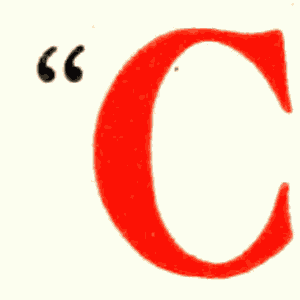
onservative dressers," as the tailors call them, have discarded the night-cap except for internal use.

hen in Rome do the Romans.

on't buy for your daughter a Count that is likely to turn out a discount.


at, drink and be merry, for to-morrow you may be married.

t is not good form to congratulate a girl friend upon her engagement. Simply remark, "So you landed him at last."

ay no obvious compliments. A beautiful woman has her mirror.


f you can afford the right sort of lawyer you won't need any Rules of Conduct.


End of Project Gutenberg's The Cynic's Rules of Conduct, by Chester Field Jr.
*** END OF THIS PROJECT GUTENBERG EBOOK THE CYNIC'S RULES OF CONDUCT ***
***** This file should be named 32227-h.htm or 32227-h.zip *****
This and all associated files of various formats will be found in:
http://www.gutenberg.org/3/2/2/2/32227/
Produced by Chris Curnow and the Online Distributed
Proofreading Team at http://www.pgdp.net (This file was
produced from images generously made available by The
Internet Archive)
Updated editions will replace the previous one--the old editions
will be renamed.
Creating the works from public domain print editions means that no
one owns a United States copyright in these works, so the Foundation
(and you!) can copy and distribute it in the United States without
permission and without paying copyright royalties. Special rules,
set forth in the General Terms of Use part of this license, apply to
copying and distributing Project Gutenberg-tm electronic works to
protect the PROJECT GUTENBERG-tm concept and trademark. Project
Gutenberg is a registered trademark, and may not be used if you
charge for the eBooks, unless you receive specific permission. If you
do not charge anything for copies of this eBook, complying with the
rules is very easy. You may use this eBook for nearly any purpose
such as creation of derivative works, reports, performances and
research. They may be modified and printed and given away--you may do
practically ANYTHING with public domain eBooks. Redistribution is
subject to the trademark license, especially commercial
redistribution.
*** START: FULL LICENSE ***
THE FULL PROJECT GUTENBERG LICENSE
PLEASE READ THIS BEFORE YOU DISTRIBUTE OR USE THIS WORK
To protect the Project Gutenberg-tm mission of promoting the free
distribution of electronic works, by using or distributing this work
(or any other work associated in any way with the phrase "Project
Gutenberg"), you agree to comply with all the terms of the Full Project
Gutenberg-tm License (available with this file or online at
http://gutenberg.org/license).
Section 1. General Terms of Use and Redistributing Project Gutenberg-tm
electronic works
1.A. By reading or using any part of this Project Gutenberg-tm
electronic work, you indicate that you have read, understand, agree to
and accept all the terms of this license and intellectual property
(trademark/copyright) agreement. If you do not agree to abide by all
the terms of this agreement, you must cease using and return or destroy
all copies of Project Gutenberg-tm electronic works in your possession.
If you paid a fee for obtaining a copy of or access to a Project
Gutenberg-tm electronic work and you do not agree to be bound by the
terms of this agreement, you may obtain a refund from the person or
entity to whom you paid the fee as set forth in paragraph 1.E.8.
1.B. "Project Gutenberg" is a registered trademark. It may only be
used on or associated in any way with an electronic work by people who
agree to be bound by the terms of this agreement. There are a few
things that you can do with most Project Gutenberg-tm electronic works
even without complying with the full terms of this agreement. See
paragraph 1.C below. There are a lot of things you can do with Project
Gutenberg-tm electronic works if you follow the terms of this agreement
and help preserve free future access to Project Gutenberg-tm electronic
works. See paragraph 1.E below.
1.C. The Project Gutenberg Literary Archive Foundation ("the Foundation"
or PGLAF), owns a compilation copyright in the collection of Project
Gutenberg-tm electronic works. Nearly all the individual works in the
collection are in the public domain in the United States. If an
individual work is in the public domain in the United States and you are
located in the United States, we do not claim a right to prevent you from
copying, distributing, performing, displaying or creating derivative
works based on the work as long as all references to Project Gutenberg
are removed. Of course, we hope that you will support the Project
Gutenberg-tm mission of promoting free access to electronic works by
freely sharing Project Gutenberg-tm works in compliance with the terms of
this agreement for keeping the Project Gutenberg-tm name associated with
the work. You can easily comply with the terms of this agreement by
keeping this work in the same format with its attached full Project
Gutenberg-tm License when you share it without charge with others.
1.D. The copyright laws of the place where you are located also govern
what you can do with this work. Copyright laws in most countries are in
a constant state of change. If you are outside the United States, check
the laws of your country in addition to the terms of this agreement
before downloading, copying, displaying, performing, distributing or
creating derivative works based on this work or any other Project
Gutenberg-tm work. The Foundation makes no representations concerning
the copyright status of any work in any country outside the United
States.
1.E. Unless you have removed all references to Project Gutenberg:
1.E.1. The following sentence, with active links to, or other immediate
access to, the full Project Gutenberg-tm License must appear prominently
whenever any copy of a Project Gutenberg-tm work (any work on which the
phrase "Project Gutenberg" appears, or with which the phrase "Project
Gutenberg" is associated) is accessed, displayed, performed, viewed,
copied or distributed:
This eBook is for the use of anyone anywhere at no cost and with
almost no restrictions whatsoever. You may copy it, give it away or
re-use it under the terms of the Project Gutenberg License included
with this eBook or online at www.gutenberg.org
1.E.2. If an individual Project Gutenberg-tm electronic work is derived
from the public domain (does not contain a notice indicating that it is
posted with permission of the copyright holder), the work can be copied
and distributed to anyone in the United States without paying any fees
or charges. If you are redistributing or providing access to a work
with the phrase "Project Gutenberg" associated with or appearing on the
work, you must comply either with the requirements of paragraphs 1.E.1
through 1.E.7 or obtain permission for the use of the work and the
Project Gutenberg-tm trademark as set forth in paragraphs 1.E.8 or
1.E.9.
1.E.3. If an individual Project Gutenberg-tm electronic work is posted
with the permission of the copyright holder, your use and distribution
must comply with both paragraphs 1.E.1 through 1.E.7 and any additional
terms imposed by the copyright holder. Additional terms will be linked
to the Project Gutenberg-tm License for all works posted with the
permission of the copyright holder found at the beginning of this work.
1.E.4. Do not unlink or detach or remove the full Project Gutenberg-tm
License terms from this work, or any files containing a part of this
work or any other work associated with Project Gutenberg-tm.
1.E.5. Do not copy, display, perform, distribute or redistribute this
electronic work, or any part of this electronic work, without
prominently displaying the sentence set forth in paragraph 1.E.1 with
active links or immediate access to the full terms of the Project
Gutenberg-tm License.
1.E.6. You may convert to and distribute this work in any binary,
compressed, marked up, nonproprietary or proprietary form, including any
word processing or hypertext form. However, if you provide access to or
distribute copies of a Project Gutenberg-tm work in a format other than
"Plain Vanilla ASCII" or other format used in the official version
posted on the official Project Gutenberg-tm web site (www.gutenberg.org),
you must, at no additional cost, fee or expense to the user, provide a
copy, a means of exporting a copy, or a means of obtaining a copy upon
request, of the work in its original "Plain Vanilla ASCII" or other
form. Any alternate format must include the full Project Gutenberg-tm
License as specified in paragraph 1.E.1.
1.E.7. Do not charge a fee for access to, viewing, displaying,
performing, copying or distributing any Project Gutenberg-tm works
unless you comply with paragraph 1.E.8 or 1.E.9.
1.E.8. You may charge a reasonable fee for copies of or providing
access to or distributing Project Gutenberg-tm electronic works provided
that
- You pay a royalty fee of 20% of the gross profits you derive from
the use of Project Gutenberg-tm works calculated using the method
you already use to calculate your applicable taxes. The fee is
owed to the owner of the Project Gutenberg-tm trademark, but he
has agreed to donate royalties under this paragraph to the
Project Gutenberg Literary Archive Foundation. Royalty payments
must be paid within 60 days following each date on which you
prepare (or are legally required to prepare) your periodic tax
returns. Royalty payments should be clearly marked as such and
sent to the Project Gutenberg Literary Archive Foundation at the
address specified in Section 4, "Information about donations to
the Project Gutenberg Literary Archive Foundation."
- You provide a full refund of any money paid by a user who notifies
you in writing (or by e-mail) within 30 days of receipt that s/he
does not agree to the terms of the full Project Gutenberg-tm
License. You must require such a user to return or
destroy all copies of the works possessed in a physical medium
and discontinue all use of and all access to other copies of
Project Gutenberg-tm works.
- You provide, in accordance with paragraph 1.F.3, a full refund of any
money paid for a work or a replacement copy, if a defect in the
electronic work is discovered and reported to you within 90 days
of receipt of the work.
- You comply with all other terms of this agreement for free
distribution of Project Gutenberg-tm works.
1.E.9. If you wish to charge a fee or distribute a Project Gutenberg-tm
electronic work or group of works on different terms than are set
forth in this agreement, you must obtain permission in writing from
both the Project Gutenberg Literary Archive Foundation and Michael
Hart, the owner of the Project Gutenberg-tm trademark. Contact the
Foundation as set forth in Section 3 below.
1.F.
1.F.1. Project Gutenberg volunteers and employees expend considerable
effort to identify, do copyright research on, transcribe and proofread
public domain works in creating the Project Gutenberg-tm
collection. Despite these efforts, Project Gutenberg-tm electronic
works, and the medium on which they may be stored, may contain
"Defects," such as, but not limited to, incomplete, inaccurate or
corrupt data, transcription errors, a copyright or other intellectual
property infringement, a defective or damaged disk or other medium, a
computer virus, or computer codes that damage or cannot be read by
your equipment.
1.F.2. LIMITED WARRANTY, DISCLAIMER OF DAMAGES - Except for the "Right
of Replacement or Refund" described in paragraph 1.F.3, the Project
Gutenberg Literary Archive Foundation, the owner of the Project
Gutenberg-tm trademark, and any other party distributing a Project
Gutenberg-tm electronic work under this agreement, disclaim all
liability to you for damages, costs and expenses, including legal
fees. YOU AGREE THAT YOU HAVE NO REMEDIES FOR NEGLIGENCE, STRICT
LIABILITY, BREACH OF WARRANTY OR BREACH OF CONTRACT EXCEPT THOSE
PROVIDED IN PARAGRAPH F3. YOU AGREE THAT THE FOUNDATION, THE
TRADEMARK OWNER, AND ANY DISTRIBUTOR UNDER THIS AGREEMENT WILL NOT BE
LIABLE TO YOU FOR ACTUAL, DIRECT, INDIRECT, CONSEQUENTIAL, PUNITIVE OR
INCIDENTAL DAMAGES EVEN IF YOU GIVE NOTICE OF THE POSSIBILITY OF SUCH
DAMAGE.
1.F.3. LIMITED RIGHT OF REPLACEMENT OR REFUND - If you discover a
defect in this electronic work within 90 days of receiving it, you can
receive a refund of the money (if any) you paid for it by sending a
written explanation to the person you received the work from. If you
received the work on a physical medium, you must return the medium with
your written explanation. The person or entity that provided you with
the defective work may elect to provide a replacement copy in lieu of a
refund. If you received the work electronically, the person or entity
providing it to you may choose to give you a second opportunity to
receive the work electronically in lieu of a refund. If the second copy
is also defective, you may demand a refund in writing without further
opportunities to fix the problem.
1.F.4. Except for the limited right of replacement or refund set forth
in paragraph 1.F.3, this work is provided to you 'AS-IS' WITH NO OTHER
WARRANTIES OF ANY KIND, EXPRESS OR IMPLIED, INCLUDING BUT NOT LIMITED TO
WARRANTIES OF MERCHANTIBILITY OR FITNESS FOR ANY PURPOSE.
1.F.5. Some states do not allow disclaimers of certain implied
warranties or the exclusion or limitation of certain types of damages.
If any disclaimer or limitation set forth in this agreement violates the
law of the state applicable to this agreement, the agreement shall be
interpreted to make the maximum disclaimer or limitation permitted by
the applicable state law. The invalidity or unenforceability of any
provision of this agreement shall not void the remaining provisions.
1.F.6. INDEMNITY - You agree to indemnify and hold the Foundation, the
trademark owner, any agent or employee of the Foundation, anyone
providing copies of Project Gutenberg-tm electronic works in accordance
with this agreement, and any volunteers associated with the production,
promotion and distribution of Project Gutenberg-tm electronic works,
harmless from all liability, costs and expenses, including legal fees,
that arise directly or indirectly from any of the following which you do
or cause to occur: (a) distribution of this or any Project Gutenberg-tm
work, (b) alteration, modification, or additions or deletions to any
Project Gutenberg-tm work, and (c) any Defect you cause.
Section 2. Information about the Mission of Project Gutenberg-tm
Project Gutenberg-tm is synonymous with the free distribution of
electronic works in formats readable by the widest variety of computers
including obsolete, old, middle-aged and new computers. It exists
because of the efforts of hundreds of volunteers and donations from
people in all walks of life.
Volunteers and financial support to provide volunteers with the
assistance they need, are critical to reaching Project Gutenberg-tm's
goals and ensuring that the Project Gutenberg-tm collection will
remain freely available for generations to come. In 2001, the Project
Gutenberg Literary Archive Foundation was created to provide a secure
and permanent future for Project Gutenberg-tm and future generations.
To learn more about the Project Gutenberg Literary Archive Foundation
and how your efforts and donations can help, see Sections 3 and 4
and the Foundation web page at http://www.pglaf.org.
Section 3. Information about the Project Gutenberg Literary Archive
Foundation
The Project Gutenberg Literary Archive Foundation is a non profit
501(c)(3) educational corporation organized under the laws of the
state of Mississippi and granted tax exempt status by the Internal
Revenue Service. The Foundation's EIN or federal tax identification
number is 64-6221541. Its 501(c)(3) letter is posted at
http://pglaf.org/fundraising. Contributions to the Project Gutenberg
Literary Archive Foundation are tax deductible to the full extent
permitted by U.S. federal laws and your state's laws.
The Foundation's principal office is located at 4557 Melan Dr. S.
Fairbanks, AK, 99712., but its volunteers and employees are scattered
throughout numerous locations. Its business office is located at
809 North 1500 West, Salt Lake City, UT 84116, (801) 596-1887, email
business@pglaf.org. Email contact links and up to date contact
information can be found at the Foundation's web site and official
page at http://pglaf.org
For additional contact information:
Dr. Gregory B. Newby
Chief Executive and Director
gbnewby@pglaf.org
Section 4. Information about Donations to the Project Gutenberg
Literary Archive Foundation
Project Gutenberg-tm depends upon and cannot survive without wide
spread public support and donations to carry out its mission of
increasing the number of public domain and licensed works that can be
freely distributed in machine readable form accessible by the widest
array of equipment including outdated equipment. Many small donations
($1 to $5,000) are particularly important to maintaining tax exempt
status with the IRS.
The Foundation is committed to complying with the laws regulating
charities and charitable donations in all 50 states of the United
States. Compliance requirements are not uniform and it takes a
considerable effort, much paperwork and many fees to meet and keep up
with these requirements. We do not solicit donations in locations
where we have not received written confirmation of compliance. To
SEND DONATIONS or determine the status of compliance for any
particular state visit http://pglaf.org
While we cannot and do not solicit contributions from states where we
have not met the solicitation requirements, we know of no prohibition
against accepting unsolicited donations from donors in such states who
approach us with offers to donate.
International donations are gratefully accepted, but we cannot make
any statements concerning tax treatment of donations received from
outside the United States. U.S. laws alone swamp our small staff.
Please check the Project Gutenberg Web pages for current donation
methods and addresses. Donations are accepted in a number of other
ways including checks, online payments and credit card donations.
To donate, please visit: http://pglaf.org/donate
Section 5. General Information About Project Gutenberg-tm electronic
works.
Professor Michael S. Hart is the originator of the Project Gutenberg-tm
concept of a library of electronic works that could be freely shared
with anyone. For thirty years, he produced and distributed Project
Gutenberg-tm eBooks with only a loose network of volunteer support.
Project Gutenberg-tm eBooks are often created from several printed
editions, all of which are confirmed as Public Domain in the U.S.
unless a copyright notice is included. Thus, we do not necessarily
keep eBooks in compliance with any particular paper edition.
Most people start at our Web site which has the main PG search facility:
http://www.gutenberg.org
This Web site includes information about Project Gutenberg-tm,
including how to make donations to the Project Gutenberg Literary
Archive Foundation, how to help produce our new eBooks, and how to
subscribe to our email newsletter to hear about new eBooks.